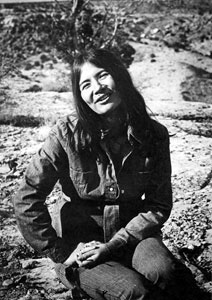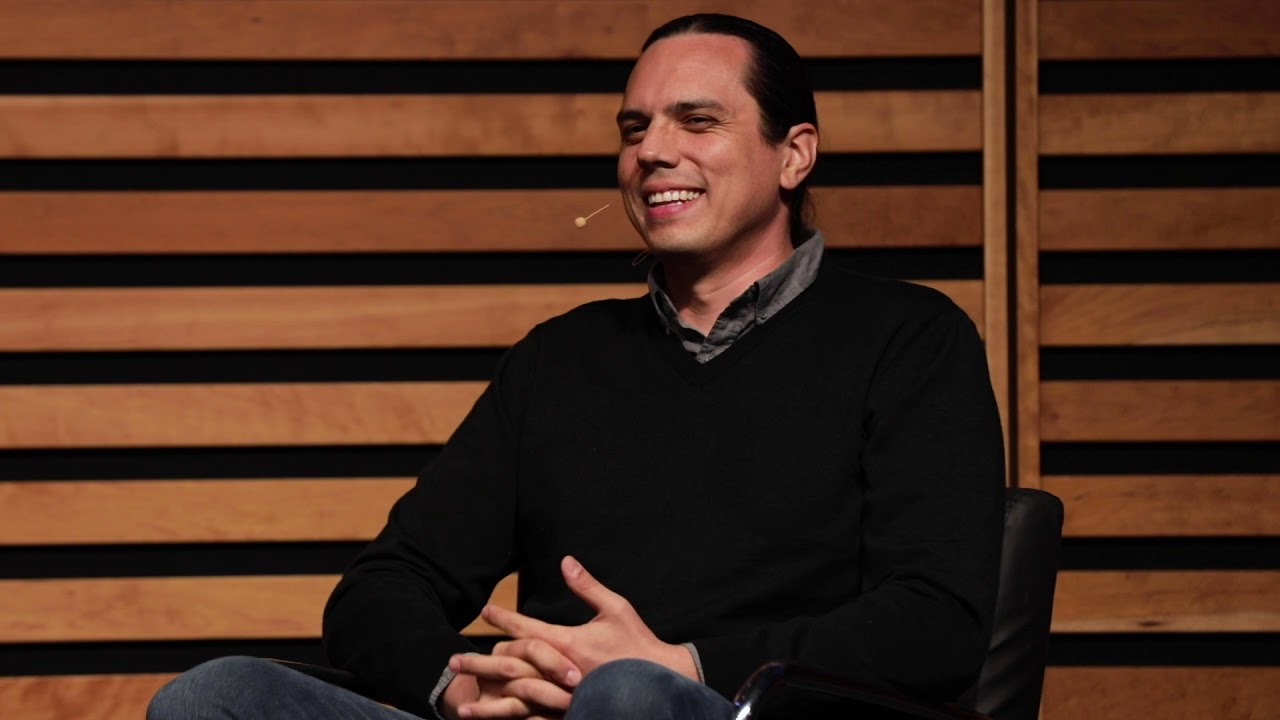
“I will tell you something about stories,” wrote Leslie Marmon Silko in her essential novel Ceremony. “They aren't just entertainment. Don't be fooled. They are all we have, you see, all we have to fight off illness and death.” These are the stories of the living then, from the authors and ancestors who have fought – who have carried them to the page across miles and decades and present days, through terminations and relocations. These are the stories that both build and resist, from a few of the important Native, First Nations, and Indigenous storytellers who wrote them.
Billy-Ray Belcourt
Billy-Ray Belcourt writes at the intersection of many realities: queerness, decolonial feminism, the Driftpile Cree Nation in Northern Alberta, and remembrance. His work is studied and lyrical. In 2017, he debuted with This Wound is a World, later followed by A History of my Brief Body in 2020, and A Minor Chorus in 2022. Like his academic predecessors Maggie Nelson and José Esteban Muñoz, Belcourt’s books are a rush, a refusal.
Robin Wall Kimmerer
Best known for her “surprise hit to juggernaut bestseller,” Braiding Sweetgrass: Indigenous Wisdom, Scientific Knowledge, and the Teachings of Plants, Potawatomi author and botanist Robin Wall Kimmerer released her first book at age sixty through a small nonprofit publisher called Milkweed Editions. From there, the masterwork has sold more than 1.4 million copies, been translated into twenty different languages, and has changed the way many readers think about the natural world.
Deborah A. Miranda
Born in Los Angeles to an Esselen-Chumash father, Deborah A. Miranda is an enrolled member of the Ohlone-Costanoan Esselen Nation of the Greater Monterey Bay Area, a tribe whose inheritance is one of genocide and forced migration, Franciscan missions, and some of the richest stolen land in the nation. All of which inform her many collections of poetry and her award-winning, genre-bending book Bad Indians: A Tribal Memoir.
Nick Estes
Nick Estes is an organizer, historian, and writer. A co-founder of The Red Nation and a citizen of the Lower Brule Sioux Tribe, he actively works and writes against the compounding forces of colonialism and capitalism. His book Our History is the Future: Standing Rock Versus the Dakota Access Pipeline, and the Long Tradition of Indigenous Resistance is both chronicle and manifesto.
![Nick Estes, Toronto Public Library, 2019.]()
Tanya Tagaq
A trained Inuk throat singer since the age of fifteen, Tanya Tagaq released four studio albums before publishing her first book in 2018. Like her music, Tagaq’s debut novel Split Tooth is singular, moving between languages and sounds and images, indistinguishable chapters and immense feeling. Experienced together or separately, her body of work has sent seismic chills around the world.
Leslie Marmon Silko
Laguna Pueblo author and poet Leslie Marmon Silko has been hailed as a significant contributor to the Native American Renaissance that began in the 1960s, but that continued with many of her books. From her 1974 debut poetry collection titled Laguna Woman to her first novel, Ceremony, and from her 1991 magnum opus Almanac for the Dead to her letters and teachings, Marmon Silko wrote toward sovereignty–toward healing, community, and tradition.
Billy-Ray Belcourt
Billy-Ray Belcourt writes at the intersection of many realities: queerness, decolonial feminism, the Driftpile Cree Nation in Northern Alberta, and remembrance. His work is studied and lyrical. In 2017, he debuted with This Wound is a World, later followed by A History of my Brief Body in 2020, and A Minor Chorus in 2022. Like his academic predecessors Maggie Nelson and José Esteban Muñoz, Belcourt’s books are a rush, a refusal.
Robin Wall Kimmerer
Best known for her “surprise hit to juggernaut bestseller,” Braiding Sweetgrass: Indigenous Wisdom, Scientific Knowledge, and the Teachings of Plants, Potawatomi author and botanist Robin Wall Kimmerer released her first book at age sixty through a small nonprofit publisher called Milkweed Editions. From there, the masterwork has sold more than 1.4 million copies, been translated into twenty different languages, and has changed the way many readers think about the natural world.
Deborah A. Miranda
Born in Los Angeles to an Esselen-Chumash father, Deborah A. Miranda is an enrolled member of the Ohlone-Costanoan Esselen Nation of the Greater Monterey Bay Area, a tribe whose inheritance is one of genocide and forced migration, Franciscan missions, and some of the richest stolen land in the nation. All of which inform her many collections of poetry and her award-winning, genre-bending book Bad Indians: A Tribal Memoir.
Nick Estes
Nick Estes is an organizer, historian, and writer. A co-founder of The Red Nation and a citizen of the Lower Brule Sioux Tribe, he actively works and writes against the compounding forces of colonialism and capitalism. His book Our History is the Future: Standing Rock Versus the Dakota Access Pipeline, and the Long Tradition of Indigenous Resistance is both chronicle and manifesto.

Tanya Tagaq
A trained Inuk throat singer since the age of fifteen, Tanya Tagaq released four studio albums before publishing her first book in 2018. Like her music, Tagaq’s debut novel Split Tooth is singular, moving between languages and sounds and images, indistinguishable chapters and immense feeling. Experienced together or separately, her body of work has sent seismic chills around the world.
Leslie Marmon Silko
Laguna Pueblo author and poet Leslie Marmon Silko has been hailed as a significant contributor to the Native American Renaissance that began in the 1960s, but that continued with many of her books. From her 1974 debut poetry collection titled Laguna Woman to her first novel, Ceremony, and from her 1991 magnum opus Almanac for the Dead to her letters and teachings, Marmon Silko wrote toward sovereignty–toward healing, community, and tradition.